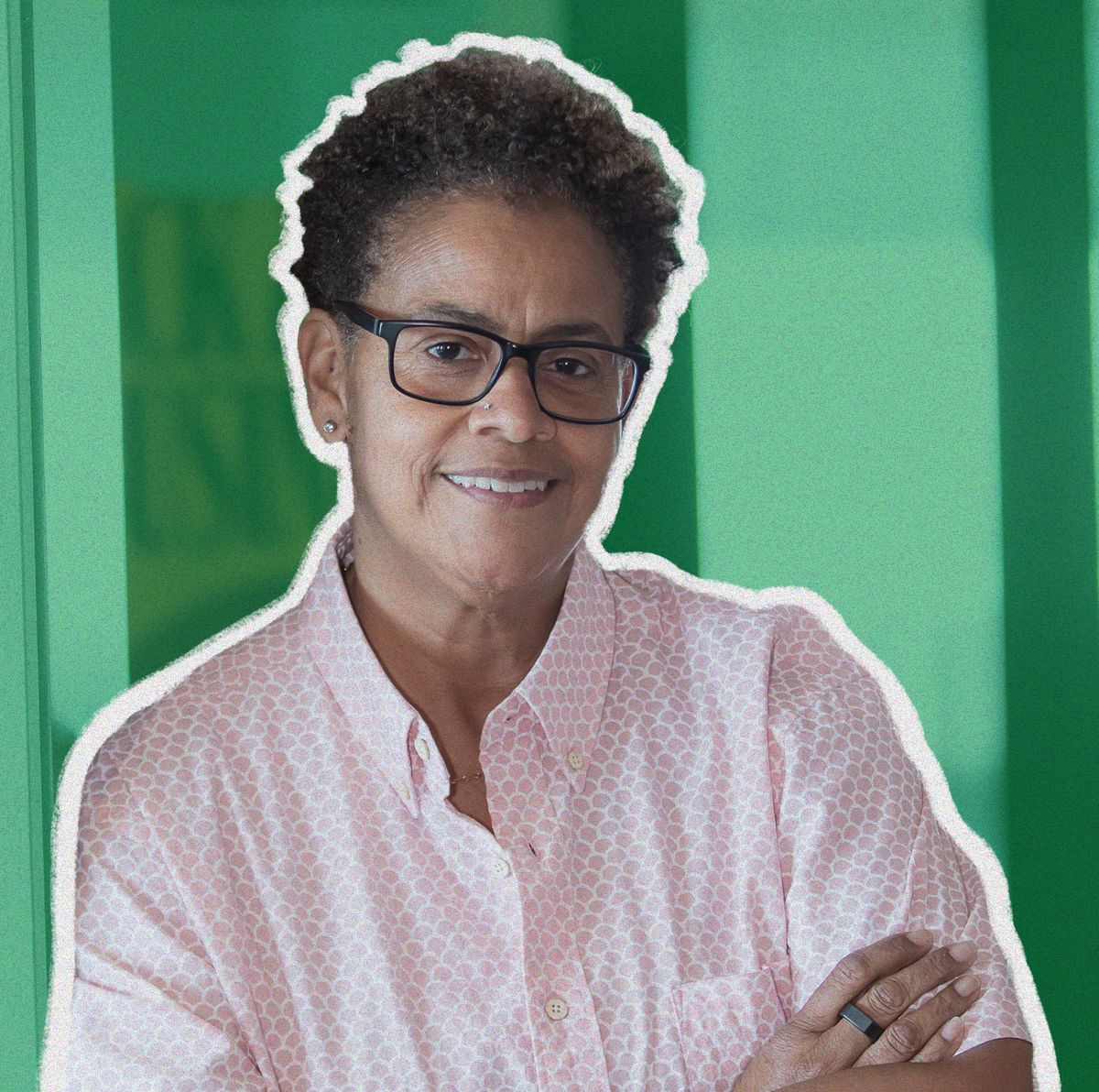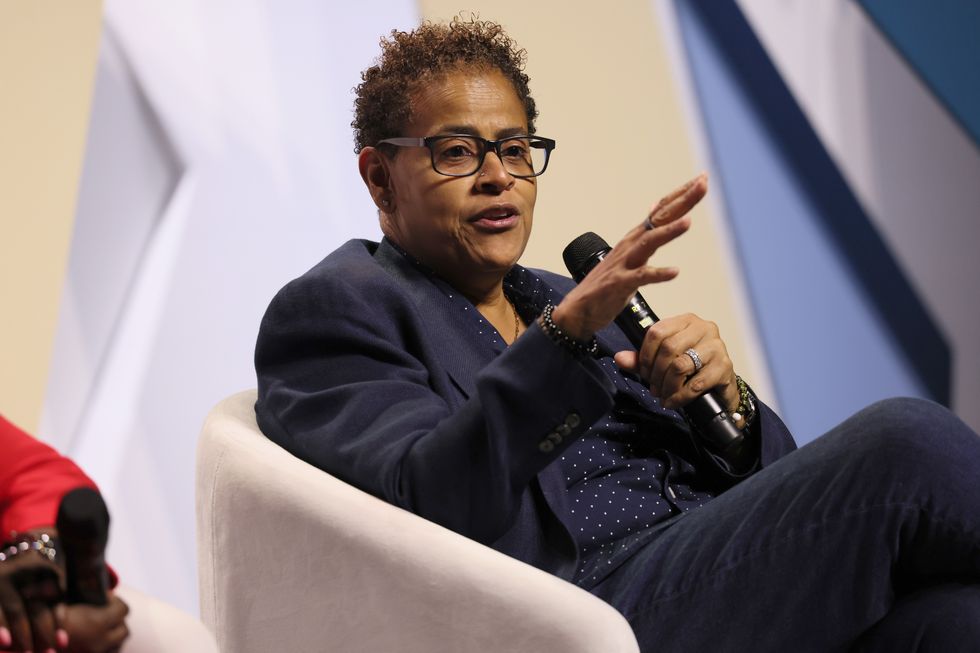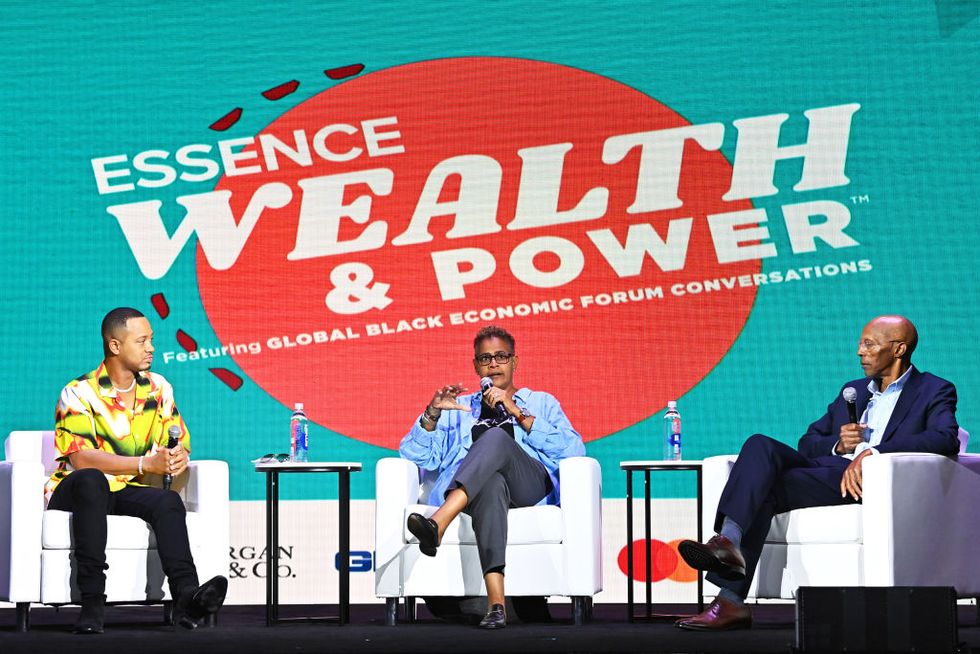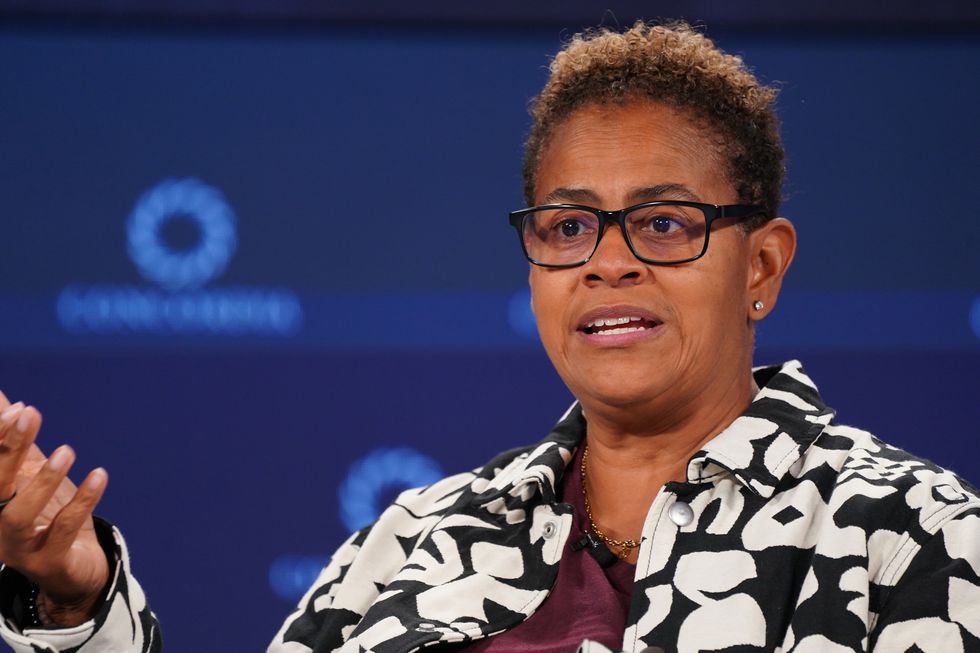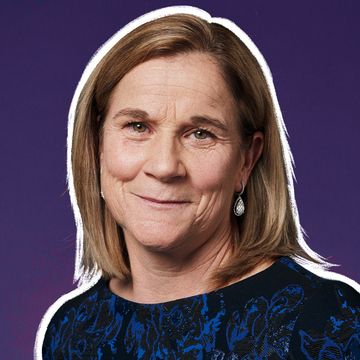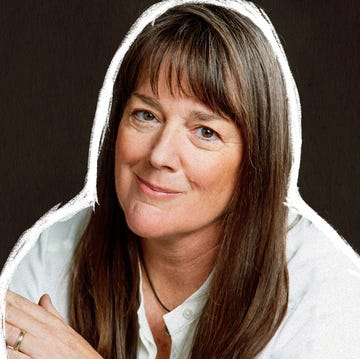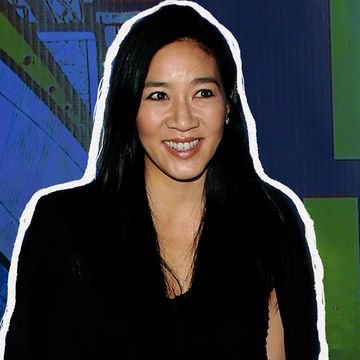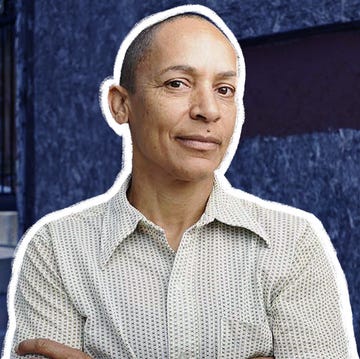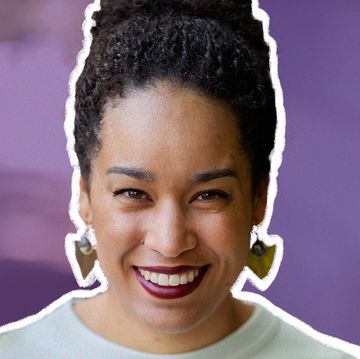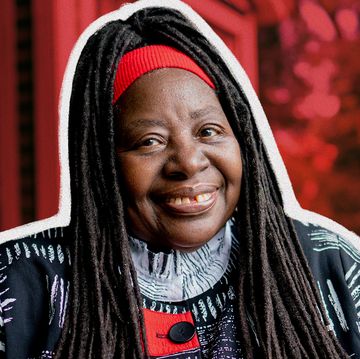In the ongoing Shondaland series Head Turners, we meet interesting women from every facet of life who are crushing it in their careers. From artists and tech mavens to titans of the boardroom, these women are breaking barriers, and they’ll share how you can too.
Melissa Bradley was denied a loan to start her business in 1991, but she never allowed that to halt her vision of launching a business in the financial sector. Instead, it inspired her. “I wanted to make sure this never happens to anyone else,” Bradley affirms. Today, she is a managing partner at 1863 Ventures, a Black-led business development accelerator and venture capital fund for New Majority Founders. The firm is responsible for supporting a network of more than 3,000 entrepreneurs.
“While there’s a lot of money out there, there was a disconnect [as to] why people who look like me weren’t getting the money,” Bradley says. She is focused on solving this issue by ensuring up-and-coming Black-owned businesses not only have access to capital but also receive the necessary coaching to sustain their businesses. Since launching in 2018, the Washington, D.C.-based firm has made it their aim to remain sector agnostic. Their portfolio includes everything from consumer-goods brands to tech companies.
Bradley first realized that entrepreneurship was a pathway to financial success when she was bartending as a student at Georgetown University. Now, she’s a professor there, teaching impact investing, social entrepreneurship, peer-to-peer economies, and innovation. Bradley’s journey to launching a successful business in the financial sector started with working in corporate America. She held management roles for companies like CIT Gap Funds, Green for All, New Capitalist, and Tides, as well as serving as a political appointee under Presidents Bill Clinton and Barack Obama.
Under Clinton, Bradley was a financial regulatory affairs fellow at the Department of Treasury, Office of Thrift Supervision, where she examined the impact of welfare reform and micro-enterprise lending on the financial industry. A variety of corporate sector roles showed her the importance of understanding product-market fit before scaling a business as well as being deeply connected to your consumer base. She notes that women in the ranks of venture capital funding are rare, but their added perspective is essential to community wealth building.
Bradley recently spoke with Shondaland about why she’s adamant about making sure high-potential female- and minority-owned businesses have the proper ecosystems to grow and succeed and how she sees Black-owned business as a vital part of future-proofing the economy.
PRISCILLA WARD: When did you know you wanted to work in finance?
MELISSA BRADLEY: I knew in middle school that I wanted to be in finance. I read lots of biographies of successful leaders and noticed a correlation to being in business. Once I started to understand business more, I realized I wanted to work in finance due to the potential for individual wealth creation and the opportunity to change outcomes through modeling.
PW: Why are you so invested in seeing early-stage Black-owned businesses succeed?
MB: There isn’t really a lot of support out there on how to grow a successful business. I’ve sold two companies now, and I understand what it takes to grow a business. Eighty-eight percent of the business development in the United States focuses on start-ups, but starting a business is very different from growing a business. For me, recognizing that those people who have the fortitude to start a business don’t fail in four years because they lack support, that’s really what we do at 1863 Ventures.
We are laser-focused on how to move people from being a founder to a CEO. Unlike other programs, we aren’t focused on how successful you are in the pitch, but we’re focused on the tangible skills to hire, fire, and create culture as well as set up financial projections and know your customers.
PW: How does it feel to look in your own backyard in the D.C. area and see many Black-owned businesses succeeding?
MB: Our members are all across the country. We started here in D.C. and will remain here in D.C. Once we became the administrator for the District of Columbia’s investment fund, it allowed us to go even deeper and have longer-term relationships with entrepreneurs in D.C. It has truly been important and significant, because I’ve been here since 1985.
Watching gentrification continue to happen in Washington, D.C., and still seeing pockets of opportunities for Black businesses is important because we know that Black businesses tend to employ more Black people. These pockets of positive community preservation are still taking place in small part because we were able to help build them.
PW: What is one piece of advice you might lend to another Black woman choosing to stay the course in a difficult economic climate?
MB: Trust yourself and your judgment. Too often we engage others who are not familiar with our unique situations, so go to the source, which is self.
PW: What mistakes did you make along the way, and what did you learn from them?
MB: I have made two big mistakes. First, in hiring, I tend to hire people I personally like and are capable [in] the moment but not always for growth. Second, I like to iterate more so than scale, which slows overall growth. The lessons learned are hire slow and fire fast as well as engage others in the hiring process. With respect to iteration, my lesson is to not let perfection be the enemy of good, and adjustments are still possible while growing.
PW: How do you see Black-owned-business growth as a vital part of future-proofing the economy?
MB: With Black businesses, especially Black female-led companies representing the fastest-growing segment of new business growth, it is important that we support these businesses in order to create jobs and contribute to the economy.
Priscilla Ward is a Washington, D.C.-based writer who has contributed to The Washington Post, Washington City Paper, Salon, Fast Company, and Architectural Digest.
Get Shondaland directly in your inbox: SUBSCRIBE TODAY
